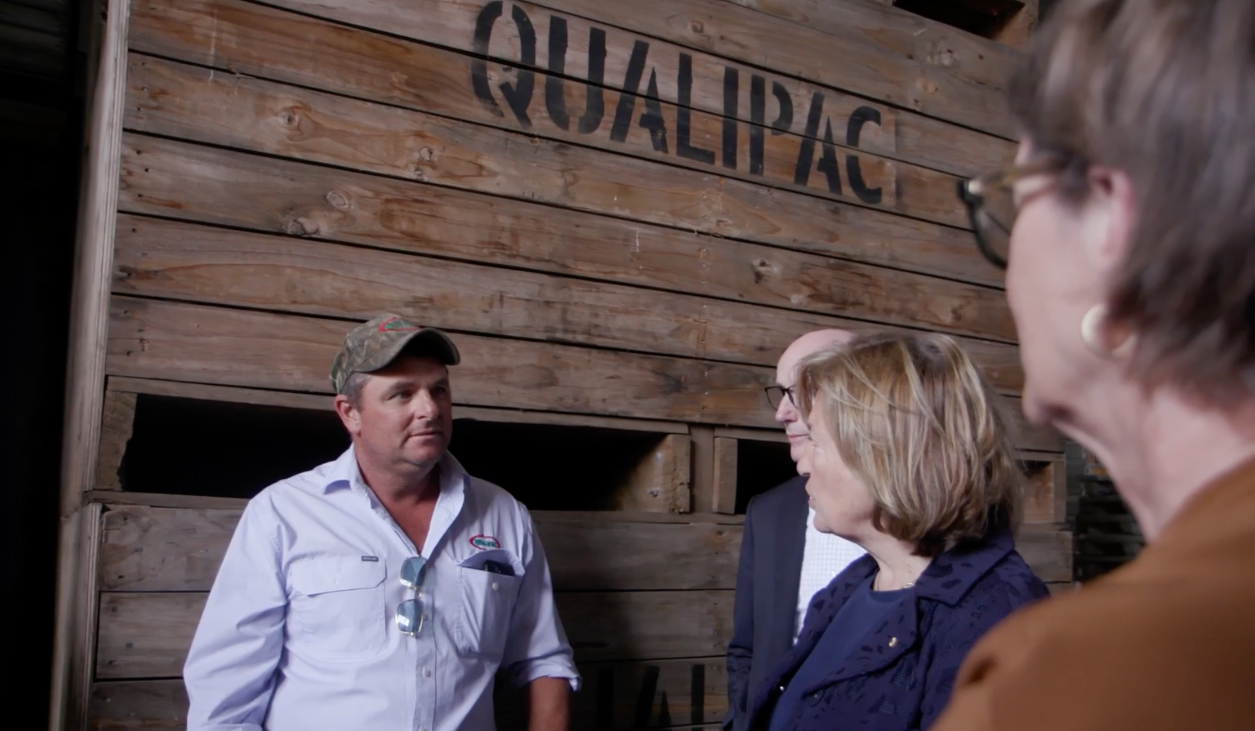Communities
Four generations of Queensland farmers feeding the nation
“One thing that’s always in plentiful supply among these families is determination and adaptability to deal with the challenges that farming throws at you.”

The best part of my job is traveling around the country meeting the people who work tirelessly to grow their farming businesses. From all corners of the country, their hard work delivers quality food and ingredients to the tables of our domestic population and to export markets.
People like Troy Qualischefski and his family who have been farming near Gatton in Queensland’s Lockyer Valley for more than 100 years. In 1906, Troy’s great grandfather Albert Qualischefski bought their first farm called “Meadow Flat” at Kentville where he grew onions and raised dairy cows.
After a number of expansions over many decades, they now produce horticulture crops from 1,000 hectares on farms across four locations – mainly onions, broccoli, pumpkins, sweet corn and green beans.
“Buying farms and redeveloping them, turning them from maybe a grazing block into a horticulture crop. That's a wonderful thing to watch happen over the years,” Troy says from the farm’s packing shed. “It's always enjoyable to grow a crop from the start and then sit here and watch it getting packed. It might end up in Melbourne at a supermarket down there or it could end up in Singapore or Tokyo.
The family moved into fruit and vegetable packing for other growers in the 1980s and Qualipac has since invested in irrigation, cold storage and drying facilities. The business is still very much a family affair and involves Troy, his parents Russell and Glenda and his siblings Brad and Leisa. It supplies fresh produce into Australian supermarkets and several export markets including Singapore, Japan and Korea.
What the family has built is a true intergenerational success story. They were pioneers who successfully expanded into different locations and different products before consolidating and successfully growing their domestic and international markets.
Farming in Australia can be difficult and there are myriad challenges to deal with. But the Qualischefski family is a classic story in farming where families continue to expand, lower their cost of production and create diversity in produce and location to set up a long-lasting business.
One thing that’s always in plentiful supply among these families is determination and adaptability to deal with the challenges that farming throws at you. When you consider the twists and turns of the last few years – a global pandemic and a string of natural disasters including floods – you have to be resilient.
Global disruption
Take the impact of COVID-19. Seasonal labour is always a challenge in this type of farming, particularly in regional areas. Attracting people at the best of times is difficult, let alone when Australia’s borders are closed. And when you throw in the disruption to global supply chains and export markets, it’s almost impossible to plan for.
“It was pretty tough, going through COVID as it ceased all our export markets. So that meant we had an oversupply in the domestic market, Troy says. “The lack of labour was also a major challenge for us. For the first time in history probably, we didn't harvest crops because of lack of labour.
“We had heaps of broccoli and no export markets. And then when we finally had the customers come back after COVID had settled down, we had the flooding and we had no product.”
The area where Qualipac’s farms are situated was hit by a big flood in February of 2022 and that was followed by another deluge in May last year.
“To get two big events like that in the one year is quite something,” Troy says. “My father, until he was 70, he’s only seen one big flood in 1974. And my young kids have seen three of the biggest floods in the last 100 years.”
Dealing with adversity
So how do farmers cope with such adversity? They adapt their business model and their practices to deal with the new environment. Or they “change things up a bit”, as Troy puts it.
They look at crops a bit differently, how and where they plant them and how they harvest them. They get a bit smarter and more efficient in how they attract and manage labour. And they invest in plant and equipment and become more innovative in how they use agricultural technology.
Troy recently attended an agtech conference in California where he looked at camera technology to help take weeds out of crops and advancements in computer-guided tractors.
“The next generation in our business, they might never drive a tractor,” he quips.
Much of this expansion requires capital and investment in machinery, technology and infrastructure. At ANZ we help provide what is required to set those businesses up for the future.
Having a long-term relationship with a customer like Qualipac, helping them through all the adversity, only reinforces our shared understanding. It helps us to be aware of what's coming so we can help them to plan with confidence and make the most of their opportunities.
Mark Bennett is head of agribusiness at ANZ.
Article list:
Customers
From humble beginnings to a new joint venture
Customers
